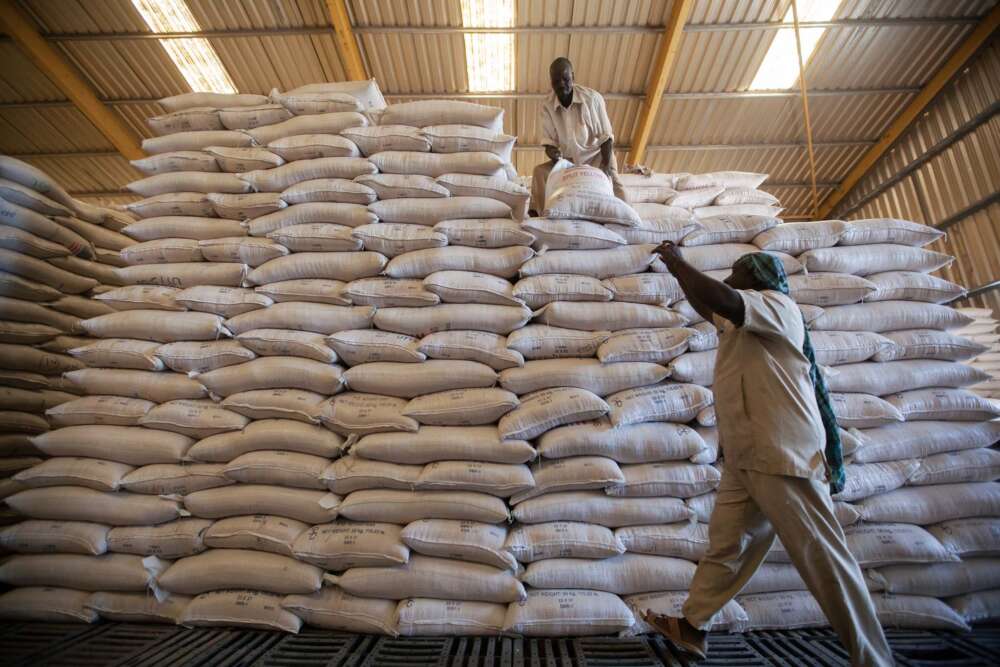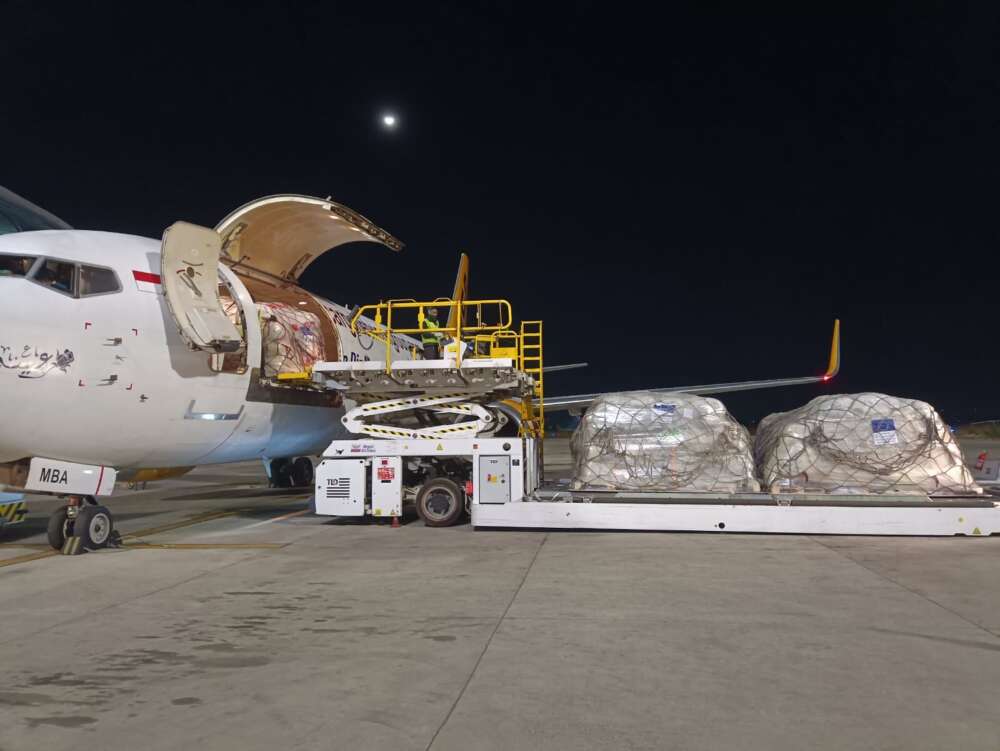Evaluation and Review of Humanitarian Access Strategies in DG ECHO Funded Interventions
Executive Summary
Donors and implementing organizations are alarmed by the gap between humanitarian needs in today’s most acute crises and the apparently diminishing access to populations in need. The total number of attacks against humanitarian aid workers has risen starkly over the past decade, and humanitarians face myriad barriers when trying to deliver assistance. These trends, however, have to be seen against the background of the rapid growth of the humanitarian sector as a whole. With more means at their disposal, humanitarian organizations have deployed more staff on the ground who are providing more assistance than ever before. While alarmist claims about diminishing access need to be viewed with some caution, the challenges that humanitarian organizations face in the countries visited for this evaluation and review (Somalia, Sudan, Afghanistan, Pakistan and Myanmar) are real.Based on a literature review and 388 interviews with representatives of donors, implementing organizations, governments and local authorities, this study analyzes what the most relevant access constraints are, what strategies humanitarian actors apply to overcome them and what trade-offs these strategies entail. It also addresses the questions of what compromises humanitarian actors should and should not accept when programming under limited access, as well as explores what DG ECHO needs to do to ensure that urgent humanitarian needs are met while the humanitarian principles are upheld in the most challenging environments.
Access Constraints
Apart from security-related restrictions, implementing organizations struggle with constraints imposed by national governments and de facto authorities, which may either reject humanitarian assistance altogether or attempt to regulate humanitarian activities in areas under their control. Governments may limit access through immigration policies or by imposing travel restrictions on humanitarian organizations in sensitive regions. Authorities can re-fuse or delay customs clearance for essential humanitarian supplies. Beyond these well-known examples, this study found that governments and non-state actors influence humanitarian management and programming in very elaborate ways, for example in Sudan and Somalia, and are quick to learn from each other how to do so. In addition, indirect constraints may also prevent humanitarian assistance from reaching those in need. While reforms are underway, internal security rules of organizations still constitute a major impediment in insecure environments, as does legislation that prevents organizations from engaging with armed ac-tors listed as terrorists. Finally, the “politicization of aid” (i.e., the blurring of lines between political and humanitarian goals) can restrict the ability of humanitarians to reach populations in need.
Dealing with Access Constraints
The evaluation found that some organizations are more successful than others in gaining or maintaining access. Yet, it is impossible to pinpoint any single access “strategy” that would account for success across different contexts. What works to overcome access constraints in one country can be counter-productive in others. This being said, the evaluation identified three groups of activities that humanitarian organizations can undertake to expand or preserve access. First, they can try to tackle constraints at their source by trying to persuade those in control to allow more access. Second, organizations can mitigate and manage security risks to continue their assistance. Finally, where access is restricted, humanitarians can operate through remote management.
Persuading Those Who Control Access
When advocating for access, many humanitarian organizations traditionally sought to mobilize national and international public opinion through media campaigns and other forms of external communication. During the early years of the Darfur conflict, public condemnations of human rights abuses and violations of international humanitarian law were used to pressure the Sudanese authorities. Today, most organizations have concluded that these efforts have most of the time been ineffective. International humanitarian NGOs, including those with a longstanding tradition of “speaking out,” have largely revert-ed to less vocal forms of private advocacy and networking to persuade rather than pressure power holders to grant access.This renewed emphasis on persuasion does not imply, however, that humanitarians generally oppose public advocacy. Rather, they expect other, less operational actors to speak out on their behalf. In countries such as Pakistan, Myanmar or Sudan, implementing organizations encouraged humanitarian donors, the Humanitarian Coordinators and UN OCHA to raise access concerns with government authorities, including through the adoption of public positions. To increase the chances of success, interviewees emphasized the need to actively engage relevant non-Western actors in a more strategic manner. Finally, there is widespread agreement among humanitarians that the task of negotiating humanitarian access with non-state armed groups should be left to implementing organizations. DG ECHO and the Commissioner should thus focus advocacy efforts on their home constituencies, other donors and selected governments, where leverage is expected to be greatest. DG ECHO should raise awareness among EU Member States and other Western actors of the negative consequences of counter-terrorism legislation and structural UN integration on humanitarian access. Further, DG ECHO and its representatives on the ground should lobby national authorities to remove specific access barriers.
Mitigating Security Risks
To protect themselves against attacks from armed groups and criminal actors, humanitarian organizations have invested significantly in security measures, entrenching themselves in heavily fortified compounds in major cities. After years of “bunkerization,” humanitarian actors generally agree that many measures adopted over the past two decades have gone too far. In fact, the growing reliance on hard security measures has turned into a vicious cycle of ever more stringent security rules and a growing isolation of humanitarian aid workers from the civilian population that they strive to assist. This recognition has led to the adoption of a new approach that is reflected in the recent reform of the UN Security Management System. While the benefits of this reform have yet to materialize on the ground, information gathered for this evaluation and review suggests that it presents a step in the right direction: a shift from focusing on risks to balancing risks and operational requirements. Nonetheless, the evaluation team noted a growing trend among UN agencies to outsource large operations to private contractors that operate outside the UN security and coordination systems. This practice raises a number of normative questions, considering that international organizations with a political or military agenda often rely on the very same private contractors as humanitarian organizations. In view of these and other concerns about how to hold such private organizations accountable, DG ECHO should develop its own guidance on the use of commercial aid providers in humanitarian operations and initiate a policy dialogue with key humanitarian actors on the issue. The evaluation also demonstrated the central role of collective security arrangements for NGOs. Feedback received regarding these collective security arrangements in Afghanistan, Pakistan and Kenya/Somalia was very positive, suggesting that investments made by DG ECHO and other donors have paid off and should be continued or expanded. Programming under limited access Where access is limited, humanitarians confront the question of what com-promises to accept without risking the long-term deterioration of established humanitarian principles and minimum operating standards. They also need to determine the point at which compromises required to keep operating become so overwhelming that leaving people in need to their own devices is the best option. The humanitarian principles remain valid as a basic guide for such decisions. However, complying with the principle of humanity, which requires organizations to save lives and alleviate suffering, can contradict the requirements to remain neutral, independent and impartial. To deal with this trade-off, organizations in the countries visited have developed internal or emergency-wide “red lines” that specify acceptable practice – for instance regarding the use of armed guards, paying for access or delivering cross-border assistance. Essential for upholding humanitarian standards and principles, such initiatives have clear limitations too. Donors in general and DG ECHO in particular have an important role in defining how far humanitarian actors can go. Prescribing rigid global red lines that determine what is acceptable, however, would not do justice to the different contexts encountered by humanitarian organizations. Rather, DG ECHO should base its decisions on a systematic reasoning process based on commonly agreed principles and standards.
Remote Management
DG ECHO’s approach to remote management provides a widely debated ex-ample for the dilemmas outlined above. Remote management is an approach that can allow organizations to continue some activities in situations where access is limited by transferring management and monitoring responsibilities to less experienced national or local staff members and/or external partners. On the one hand, managing projects remotely means reducing control and oversight. This increases the risk of aid diversion and can reduce project quality. It can also entail a transfer of risks to local staff or partners. On the other hand, remote management is often the only way to provide assistance to those in need. Currently, DG ECHO finances remote operations to a variable extent in all countries visited. But as the heated debates within DG ECHO show, the related decisions are not based on a common method for assessing individual situations.The increasing reliance on remote management has led to a growing sense of unease among donors and implementers. DG ECHO should be clear about what kind of remote operations it is prepared to finance. DG ECHO should consider seven issues when taking these decisions and ensure that its partners address these issues in proposals and remote policies. First, organizations must avoid undue risk transfer to field staff, partners and beneficiaries. Second, partners proposing remote approaches should describe how they intend to build acceptance – both as a security measure and to eventually regain access. Third, they need to specify the level of experience and technical capacity of responsible field staff. Fourth, where projects are implemented in volatile areas with fragile access, organizations should have contingency plans for how to switch to remote mode when access deteriorates. Fifth, monitoring procedures have to be adapted to the challenges of remote management. Sixth, DG ECHO should give precedence to organizations that have located senior staff as close as security conditions permit to the proposed area of intervention. Finally, DG ECHO should give precedence to organizations that seek to deliver outputs directly or limit the chain of contractors and sub-con-tractors for implementing projects. In addition to applying these criteria, DG ECHO should support good practices to ensure that accountability standards are not lowered in the long-run and to prevent remote management from turning from the exception to the rule. The most promising approaches that this study has observed involve innovative human resources policies and creative approaches to recruit and actively engage non-Western staff. DG ECHO needs to improve its ability to monitor projects directly. It should recruit senior staff who can more easily “blend in” with the respective local environment and who are less encumbered to travel by administrative restrictions.
Deciding When to Disengage
There are also other situations when donors and implementers need to decide what compromises are acceptable to continue serving populations in need. Donors and implementing organizations face political pressures, financial incentives and other dynamics that make them accept more compromises than they would if they acted based on purely humanitarian considerations. In Sudan and South-Central Somalia, many humanitarians with hindsight regret not having stopped the step-by-step deterioration of the humanitarian situation. DG ECHO’s standard instruments already cover most elements that are relevant for deciding whether or not to disengage. However, they do not sufficiently consider potential negative effects of humanitarian activities. The evaluation recommends that DG ECHO give greater weight to this aspect in instruments like the Single Form, as well as in evaluations.
Conclusion
The countries assessed for this review and evaluation show that there are no silver bullets for increasing access. What works to increase access in one co-funded interventions text can be counterproductive in another. Still, important lessons have been learned. Humanitarians have recognized that “bunkerization” and an overreliance on hard security measures cannot substitute for acceptance building. They are thus rediscovering the importance of understanding the social and political context that they are working in. In addition, a clear trend emerges among the most successful organizations to deWesternize their staff and recruit members of Diaspora communities or experienced locals for management positions.When attempting to maintain or increase access, humanitarian actors face dilemmas and need to carefully balance humanitarian principles and minimum requirements for providing assistance, so as not to compromise their credibility in the long run and risk unintended harm. As a donor, DG ECHO not only has an important enabling role to play for organizations that seek to in-crease access. It should also engage in continuous, critical dialogue with its partners to see whether a specific context still allows for effective and principled assistance – or whether the compromises to maintain a minimum level of access would be too much to accept. Finally, when seeking to increase access, international humanitarian organizations should not neglect other ways to alleviate suffering and save lives. Donors like DG ECHO should also strive to find other ways to allow populations to access the assistance they need. Where appropriate, they should prioritize support for local responses and other coping mechanisms.
The full report is available for download.







